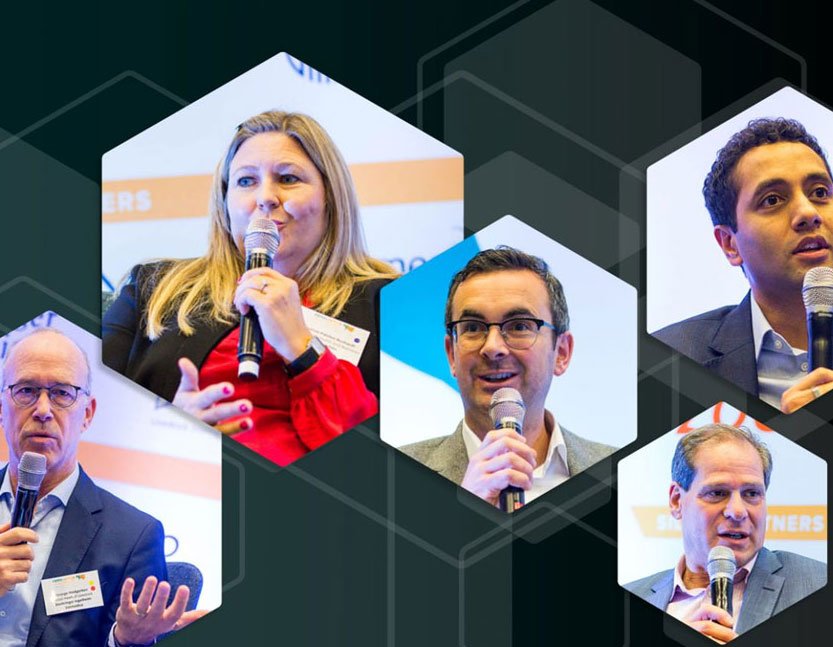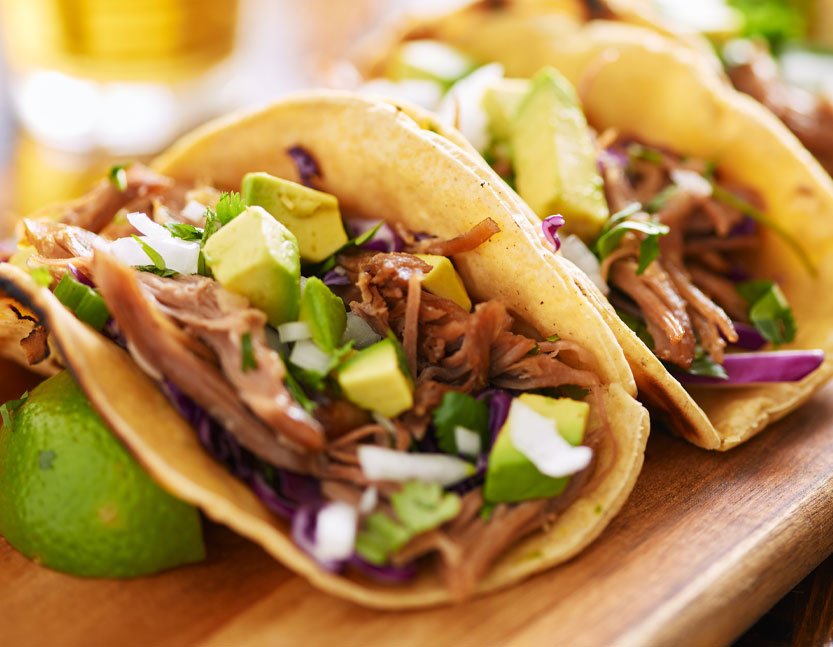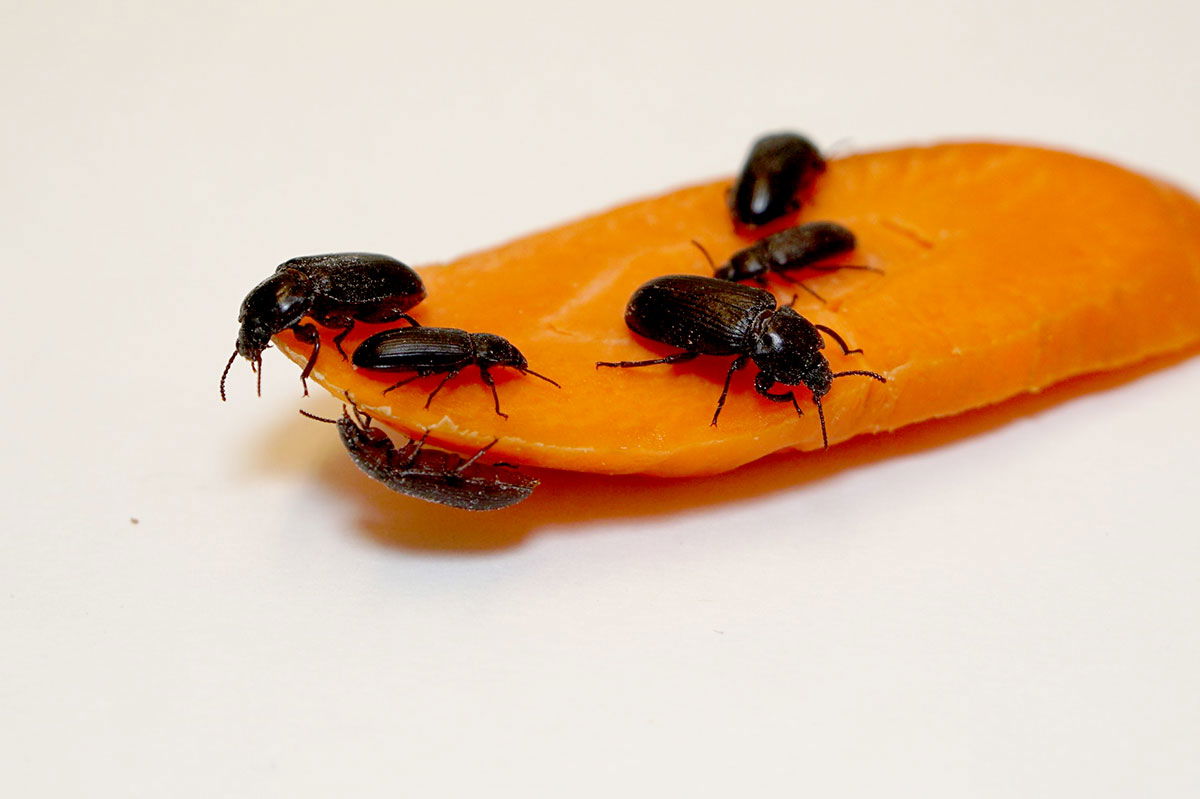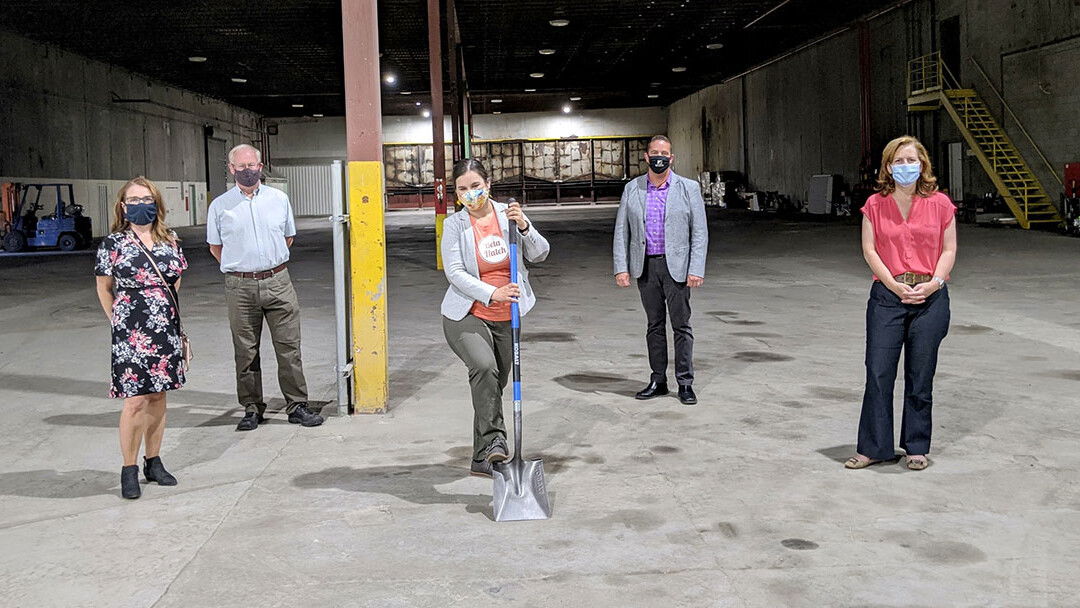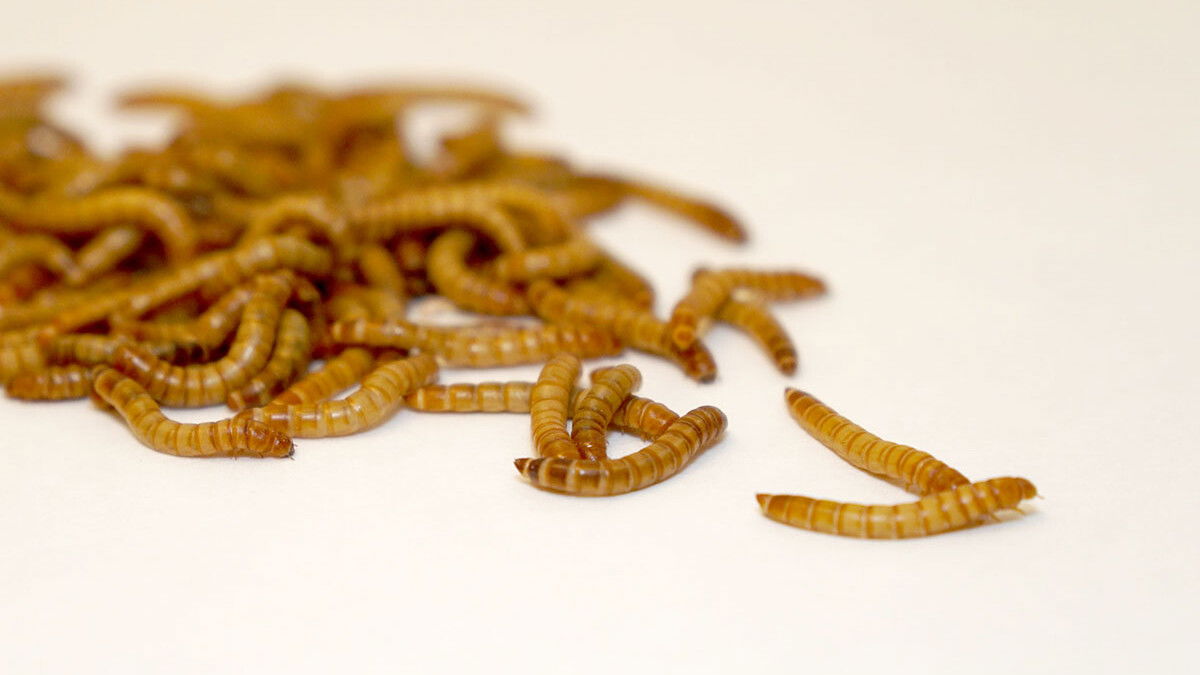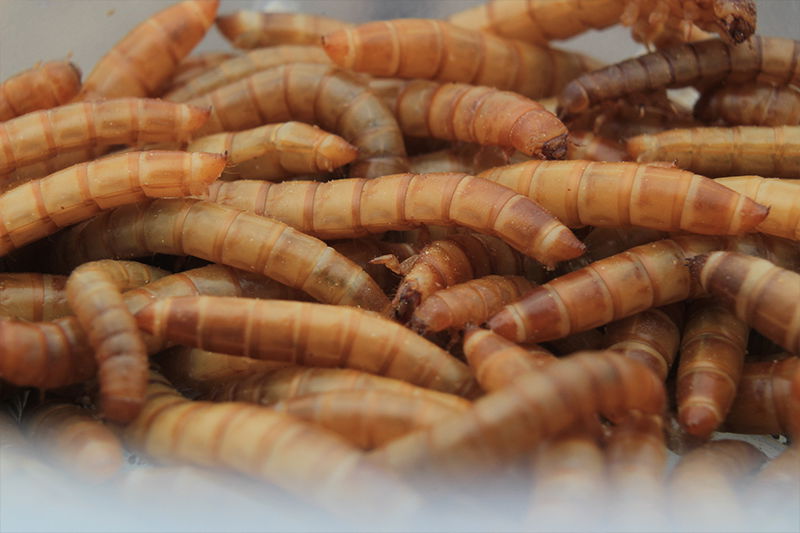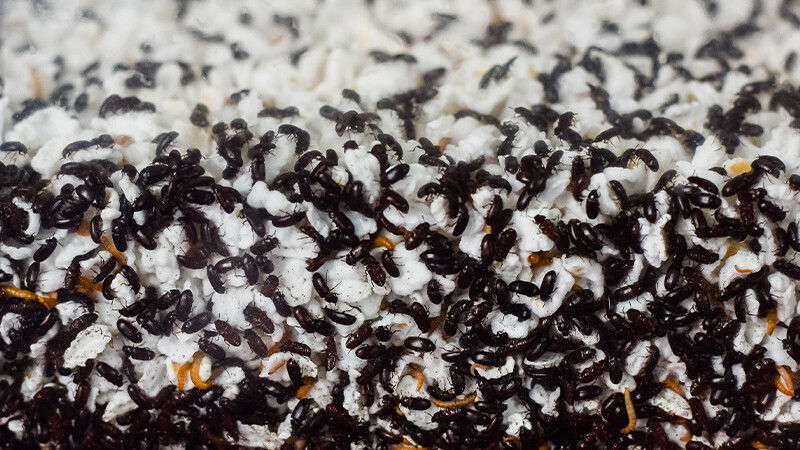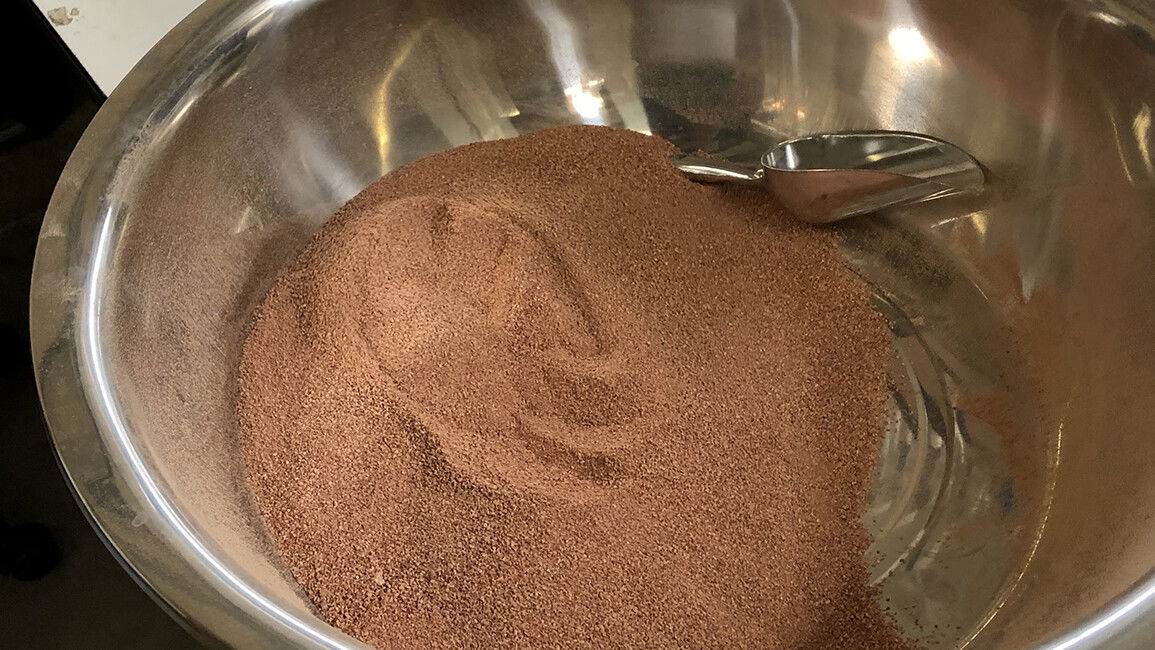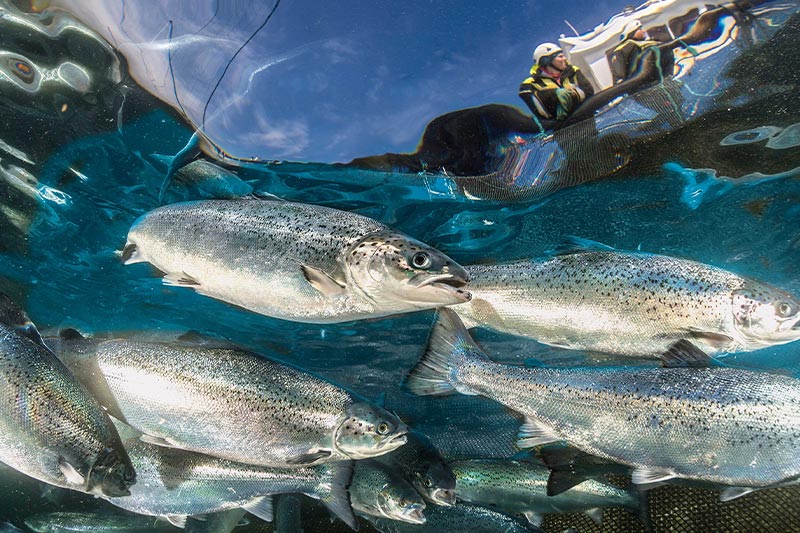Veramaris becomes first ASC-MSC certified microalgae for feed
| Press Release |
Veramaris® becomes first ASC-MSC certified microalgae for feed
Veramaris® has become the first microalgae oil producer for feed to achieve certification to the joint ASC-MSC Seaweed (Algae) Standard.
The company responsibly and sustainably produces EPA & DHA Omega-3 algae oil [1] for use in the aquaculture industry as fish feed and pet food and is the first American producer to achieve the ASC-MSC certification.
Veramaris’ certified sustainable facility, which is entirely land-based, adds an estimated 45% to the global supply of MSC certified EPA & DHA Omega-3 [2] and covers approximately 15% of the global requirement for EPA & DHA in farmed salmon feeds.

According to the Food and Agriculture Organization of the United Nations (FAO), aquaculture is instrumental for meeting the increasing global demand for nutritional food while restoring the health of our oceans. To meet this growing demand sustainably, fish farms need responsibly-sourced fish feed – an ASC-certification requirement. This feed must contain the two key Omega-3 fatty acids EPA & DHA, which are vital for animal and human health and mostly come from wild-capture fish. One ton of Veramaris algae oil provides as much EPA & DHA as from 60 tons of forage fish.
The certification is good news for pet owners who want to provide their pets with optimal nutrition while reducing the environmental paw-print of their dogs and cats. Consumer research conducted for Veramaris has shown that 75% of pet owners are willing to pay more for pet food brands containing algae Omega-3. By including Veramaris algae oil in their products, pet food producers can offer customers a sustainable option for keeping their four-legged friends healthy and happy.
Patricia Bianchi, ASC-MSC Seaweed Account Manager said: “Congratulations to Veramaris on becoming the first producers of algae-derived Omega-3 to be certified against the ASC-MSC Seaweed Standard. This certification confirms that the operation minimises the impacts on the environment, with good labor conditions and positive impacts for the community.
“Our oceans are under great pressure to supply fish both for direct human consumption and for feed in the aquaculture industry. We are hopeful that the sustainable and responsible production of Omega-3 from algae will help to relieve some of this pressure on wild stocks and help reduce the risk of overfishing.”
Karim Kurmaly, Veramaris CEO said: “This achievement is an imperative milestone on our journey to expand the world’s access to sustainable EPA & DHA Omega-3. We are committed to working with partners along the value chain to bring transparent and sustainable solutions to the industry that results in healthy fish, healthy food and healthy oceans for generations to come. I extend my gratitude to the global Veramaris team that has worked very hard to bring us to where we are today with this great achievement.”
Gaining the ASC-MSC certification required a rigorous audit process against dozens of requirements for good management practices. An in-depth audit over many days was carried out by an independent company, SAI Global that checked records, took measurements, and interviewed operators to assess whether the facility met every requirement in the standard. These requirements include responsible energy use, minimal impacts on biodiversity, fair treatment and pay for all staff and involves a public consultation period.
About Veramaris
Veramaris, headquartered in Delft, The Netherlands, is a joint venture between DSM and Evonik, both world leaders in science and specialty chemicals. Established in 2018, Veramaris was formed to help realise a vision to conserve natural marine life by using the ocean's own resource, natural marine algae, to sustainably expand the world's access to Omega-3.
Veramaris extracts oil from natural marine algae, rich in both the essential Omega-3 fatty acids EPA & DHA, and also ARA, a long chain Omega-6, vital nutrients for improved brain, heart and eye health in both animals and humans.
The zero-waste industrial scale production process runs at a state-of-the-art site in Blair, Nebraska, USA.
Veramaris enables key stakeholders in aquaculture and pet nutrition to become independent of wild-caught fish and meet the growing demand for sustainable seafood and animal protein.

Soil Association Teams Up with Project X Global
| NEWS |
Soil Association Teams Up with Project X Global
We are delighted to announce the beginnings of a partnership with the Soil Association, the UK’s leading membership charity for sustainable food, farming and land use.
We deeply respect the work undertaken by the Soil Association – the only UK charity working across a spectrum of human health, the environment, and animal welfare and have asked them to work with us on our programmes to support a change to truly sustainable food across the globe.
We have invited the Soil Association to join us as a strategic advisor and implementation provider for agricultural programmes. We have also been invited by the Soil Association to join them as a strategic advisor and implementation provider for systems change and value chain programmes.
Marcela Navarro, CEO and Co-Founder of Project X, had the following to say about this new relationship:
“No organisation can make a change of this magnitude on their own and we are thrilled to have this opportunity to collaborate with the Soil Association and their amazing team. We have a phenomenal opportunity to take action to tackle the key challenges of our time where a coordinated approach and the right partners are fundamental”.
Liz Bowles, Director of Farming and Land Use at the Soil Association, said: Collaboration is a key way in which the Soil Association works, and as we embark on our strategy to 2030 to enable a transition of our food and farming system to one which addresses the climate, nature and health emergencies, we know that we can do so much more through working with others. We really like the way in which Project X works and are excited to be starting a joint journey with them.
One of Project X’s core beliefs is that people are stronger together. We care about the Earth and the people who live on it, which is why we strive to provide change at the pace the planet needs it. That’s why this collaboration between such keenly value-aligned companies is brilliant; by working together, we are sure to accelerate our common goals and amplify the impact potential of both companies.

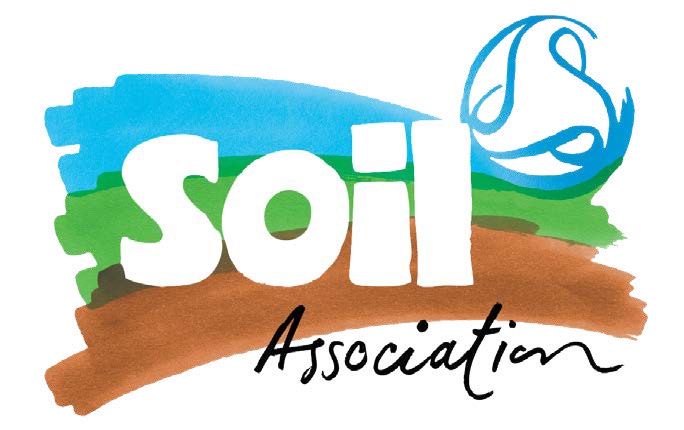
Soil Association was founded in 1946 by farmers, scientists, doctors and nutritionists to promote the connection between the health of the soil, food, animals, people and the environment. Today the Soil Association is the UK’s leading membership charity campaigning for healthy, humane and sustainable food, farming and land use. Its Chief Executive is Helen Browning, and Chair of Trustees is Martin Nye.
A look back at September's Animal AgTech Innovation Summit
A look back at September's Animal AgTech Innovation Summit
Back in September, at the virtual Animal AgTech Innovation Summit, Project X Global’s CEO, Marcela Navarro, lead a fascinating discussion on how the animal agtech industry is shaping food security, and the new opportunities in animal health, nutrition and precision farming.
Marcela chaired a panel discussion and was one of a handful of industry leaders and experts participating in the Summit, which included Microsoft, Danone, Austral Fisheries, Tesco, Aqua-Spark and McDonald’s Corporation.
The panel discussion session, “Supply Chain Safety, Transparency and Traceability- Creating Connectivity between Industry and Consumer” covered key issues including how the industry can use digital tools to prove its welfare, sustainability and quality credentials, the impact that blockchain is having on supply chain safety, transparency and traceability, and the possible collaboration between industry stakeholders.
Marcela lead the discussions with an assembly of stimulating questions, which included asking the panel to share their views on the return on investment and how feasible it is to distribute it among more than one player in the value chain.
One of the panel members, Claudia Roessler of Microsoft, spoke of how progress will rely on the entire value chain. “We cannot expect a consortium of farmers to resolve this on their own – different players all need to come together. Larger players need to invest in the first place, creating subsequent compensation when the data is shared.”
Overall, the panel discussion was tremendously successful, with insightful contributions from David Carter of Austral Fisheries, Johan De Meulemeester from Allflex, and Matt Earle from Proagrica.
For further information on the event, please contact Marcela Navarro, mn@projectxglobal.com
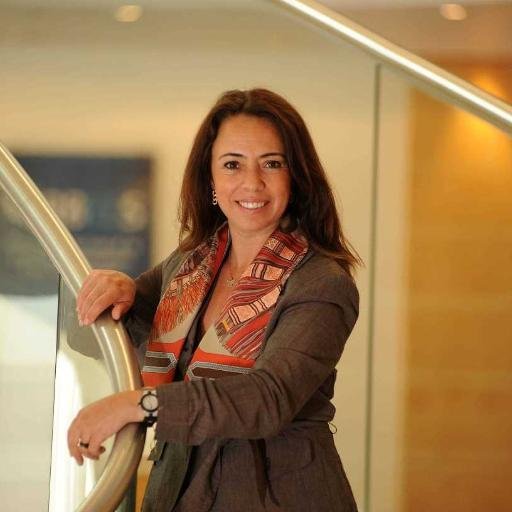
Marcela Navarro, Project X Global CEO & Co-Founder
Fancy mealworms for the tacos?
Fancy mealworms for the tacos?
We have some wonderful news to share about one of our partners: Tebrito, a brilliant innovator that works with insect proteins. For a long time, the EU legislation regarding the sale of insects as food has been left open to some interpretation.
The law defines insects as a so-called ‘novel food’; products that have not been used as food to a great extent in the EU before 1997. They are also one of a group of foods that may not be sold without the European Commission first assessing that the food in question does not pose a health risk to customers. As such, most European countries (including Tebrito’s originator, Sweden) interpreted the legalese to mean that all forms of insects must be approved by the European Commision before they can be put up for sale. Other countries permitted the sale of whole insects – leading to an unhelpful double standard for companies like our partner’s.
Luckily, this disparity prompted the European Court of Justice to reconsider their previous stance. As of recently, insects have been ruled to be unaffected by previous legislation. The EU is now entering a transitional period where whole insects may now be sold by all countries.
Of course, now that Sweden’s food agency – the Livmedelsverket – has updated their views on whole insects as food, the final hurdle in Tebrito’s plan to deliver protein in the most sustainable way has finally been lifted! This is great news; we look forward to seeing Tebrito continuing to make waves unencumbered.
Marcela Navarro, our CEO, commends the Livmedelsverket’s open-mindedness:
“Well done to the Swedish National Food Administration for this positive decision and openness to regenerative change.This is a positive step forward that the country and the food industry is welcoming -and it will probably support other countries to reverse / update their interpretations.”

Beta Hatch is industrializing insect farming within a regenerative food system
| Press Release |
Beta Hatch is industrializing insect farming within a regenerative food system
Beta Hatch is industrializing insect farming within a regenerative food system, both through innovations in insect rearing and through reinvention of the feed supply chain. We are currently building North America’s largest mealworm farm to supply sustainable protein ingredients to aquaculture and other animal feed markets.
The ‘chicken-egg’ challenge [or ‘beetle-egg’ challenge] of the alternative protein sector is that customers demand stable production capacity before signing a contract, but insect companies need to show customer demand to build and finance the growth of their operations. Through Feed-X, Beta Hatch has been able to establish relationships with customers like Skretting and IKEA who are willing to take the risks of supporting novel ingredients.
As the leading American insects-as-feed company, Beta Hatch is excited to start filling the customer demand for sustainable, traceable and responsibly sourced proteins. Beta Hatch is working with Feed-X to establish product performance of our ingredients for customers like Skretting, to demonstrate the increased fish yields and improved health outcomes from insect-based aquaculture diets.
September 2020 ground breaking at the flagship operation in Cashmere, WA. Beta Hatch CEO Virginia Emery, center, held a ceremonial groundbreaking with officials from the city of Cashmere, U.S. Rep. Kim Schrier, and Malachi Salcido, whose next-door cryptocurrency mine will provide waste heat for the operation.
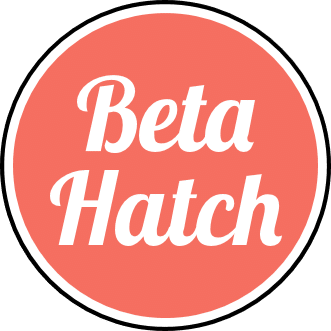
Biokind selected in the Feed-X global search for innovations in sustainable feed ingredients
Press Release: October 11, 2020 | London, United Kingdom
Biokind selected in the Feed-X global search for innovations in sustainable feed ingredients
- Biokind selected as 1 of top 10 innovators globally by Feed-X
- Their innovative process produces a high-protein animal-feed ingredient from bacteria cells
- Feed-X is the brainchild of Project X whose goal is to remove the barriers to sustainably fed, affordable food 2025
- Biokind will engage with Skretting on testing their innovation to quickly bring it to market
Biokind – a UK-based company producing sustainable protein ingredients for aquaculture feed – was selected among the top ten sustainable innovations that will progress to latest round of the Feed-X programme.
Biokind was chosen among a group of ten challenger innovations by a panel of 13 subject matter experts in the fields of nutrition, feed, environment, alternative protein, aquaculture innovation, finance, assurance.
Now, the Feed-X innovators including Biokind will have the opportunity to test their innovations in Skretting sites globally, bringing Project X and its mission aligned partners closer to their goal to remove the barriers to sustainably fed, affordable food by 2025.
Biokind previously responded to a ‘call for innovations’ run by Project X and its mission aligned partners, including Skretting, WWF, IKEA and EIT Climate-KIC, who wanted innovators to come forward with sustainable alternatives to transform the performance of the animal feed industry.
This call was a part of Feed-X, launched last year as one of several programmes designed and run by Project X to tackle sustainability challenges at an industry level.
Sourcing sustainable protein ingredients is a major challenge for the animal feed industry, including the aquaculture feed sector which is rapidly growing worldwide, and changing this is a core focus for Feed-X.

Biokind’s innovation very much aligns with this goal, by allowing the production of high-protein bacteria cells using crop waste, like stems and leaves, as the input material. The bacteria can be used as a sustainable alternative to current ingredients like fishmeal and soy protein concentrate.
Biokind presented their innovation at a London to a high calibre panel including representatives from Skretting, IKEA, DTU Aqua, WWF, Cambridge University, Surrey University, DNV GL, The World Bank, as well as private wealth and impact investment partners, with EIT Climate KIC providing an independent observation.
The competition was tough, with the initial call for innovations receiving more than 133 expressions of interest from innovators around the world. Marcela Navarro, CEO of Project X, is delighted with the quality of the finalists. “We are thrilled to be moving forward with such a talented roster of innovators; each and every finalist has demonstrated an incredible potential for sustainability performance and an inspiring commitment to make a positive difference in this planet. Biokind should be very proud to be a finalist in Feed-X,” she said.
Max Swinscow-Hall, CEO of Biokind, said: “It is an incredible boost for us to be selected by such a prestigious panel to participate in this vital programme. Feed-X is working with key stakeholders in this challenge, such as Skretting, and we are absolutely excited to be a part of it.”
James Rose, Operations & Procurement Director, Skretting said: “At Skretting, we have seen that the biggest limitation in implementation of novel ingredients is scale.”
“This project allows a game-changing discussion to mobilise the necessary resources, and highlights why we’re involved in Feed-X – we can make a real impact to global sustainability. And of course we see a direct link with our mission of Feeding the Future.”
About Project X
Project X is a catalyst that makes sustainability happen, quickly and at scale. We use a unique methodology to help companies adopt the very best sustainable innovations that have undergone a comprehensive risk assessment. This, in turn, helps entire industries become more resilient and resource efficient, rather than just individual companies.
This fundamentally changes the way things are made, sold and consumed – reducing environmental, ethical, social, financial impacts where they are needed most and creating better outcomes for people and planet.
About Biokind
Biokind is a multi-award winning startup working to replace unsustainable protein ingredients, like fishmeal and soy protein concentrate, in aquaculture feeds worldwide.
Biokind has developed a process which processes crop waste, like stems and leaves, as a feedstock to grow bacteria which are dried to give a high-protein, nutrient dense ingredient for aquaculture feed.
For more details contact
Project X
Jan Gilbert, jg@projectxglobal.com / JV@projectxglobal.com
Skretting
Sophie Noonan, Sophie.noonan@skretting.com
Climate Kic
Catherine Laurent-Polz, Catherine.Laurent-polz@climate-kic.ork
For further information on the innovation please contact
Biokind
Max Swinscow-Hall, max@biokind.co.uk

Insect protein Swedish leader Tebrito to bring innovative and climate-smart alternative fish feed at scale
| Press Release |
Insect protein Swedish leader Tebrito to bring innovative and climate-smart alternative fish feed at scale
STOCKHOLM, October 1st, 2020
Tebrito is one of 10 selected companies to bring innovation at scale to the fish feed scene. 100+ applicants were screened by Project X and 10 companies were finally chosen by an industry expert jury during a London event in September 2019. Partners to the initiative include Skretting, IKEA, DTU Aqua, WWF, Cambridge University, Surrey University, DNV GL, and the World Bank. Prominent partners like EIT Climate-KIC also too part to the event as independent observers.
The aquaculture industry has shown considerable interest to the development of novel ingredients in recent years, and made significant investments in R&D. “It is essential for us that these new ingredients are not only safe and sustainable, but also ensure that the end product maintains the nutritional benefits we have come to expect from high quality seafood,” says Jenna Bowyer from Skretting. “The aquaculture industry is very large and growing, and it is essential for us to see novel ingredients brought to commercial scale.”
A 30 million tonne projected increase in aquaculture production in the near future means there will be a need for an additional 45 million tonnes of raw materials; commercial production of insect meal can help to meet this demand in a sustainable way, contributing to a circular bioeconomy.
Combining best-in-class extraction process, automation, and circular raw material sourcing, Tebrito upcycles low value side-streams into high-quality protein. The growing start-up invests in new machinery to increase production volumes to meet a rising demand.
“Providing a true alternative in quality and usability is a key concern to us” explains Nils Österström, Tebrito’s CEO. “Building on a circular model we seek to provide equivalent functional properties – certain Salmonidae species can include up to 70% insects in their diets – that are natural, climate efficient and also contribute to reduce the use of antibiotics”.
“Our approach to use insects as catalysts to upscale under-utilized biomass into protein applications led us to tie a partnership and further innovate. Sweden is 70% covered by forest and we co-develop a promising solution with Swedish pulp and paper industry giant SCA to feed our larvae with bio sludge” adds Bertrand Giorgi, Tebrito’s COO. “The ultimate goal is to deliver a virtually carbon-negative feed to farmed fish from a short local circuit”.

NovoNutrients fast tracked in the FEED-X global search for sustainable innovations to solve major protein supply-chain challenges
| Press Release |
NovoNutrients fast tracked in the FEED-X global search for sustainable innovations to solve major protein supply-chain challenges
SUNNYVALE, Calif. NovoNutrients, a Silicon Valley based innovator making protein through carbon capture and utilization, was selected as one of the 11 sustainable innovations that are active in the culmination of the FEED-X programme. The company is dedicated to capturing carbon dioxide and transforming it into bulk protein and food and feed additives, through proprietary precision fermentation.
FEED-X is one of several Project X programmes designed to tackle sustainability challenges at an industry level. Marcela Navarro, CEO of Project X Global, commented on the innovators that were selected from more than 133 expressions of interest. “We are thrilled to be moving forward with such a talented roster of innovators with incredible potential for sustainability performance and inspiring commitments to make a positive difference to the planet.”
“NovoNutrients is very proud to be a FEED-X innovator,” Brian Sefton, CTO and founder, said. As for making nutrition from greenhouse gases, particularly for seafood production, he explained, “Aquaculture relies on feeding wild fish to farmed fish. Less costly additives and proteins are needed to make feed with wild fish ingredients in it and more of everything else. Our gas fermentation process is anchored by low blended-cost, massive-scale feedstocks: waste CO₂, as well as hydrogen. The gases grow up our fast-doubling bacterial strains, which can be natural, have 70%+ protein, and, optionally, integrated additives.”
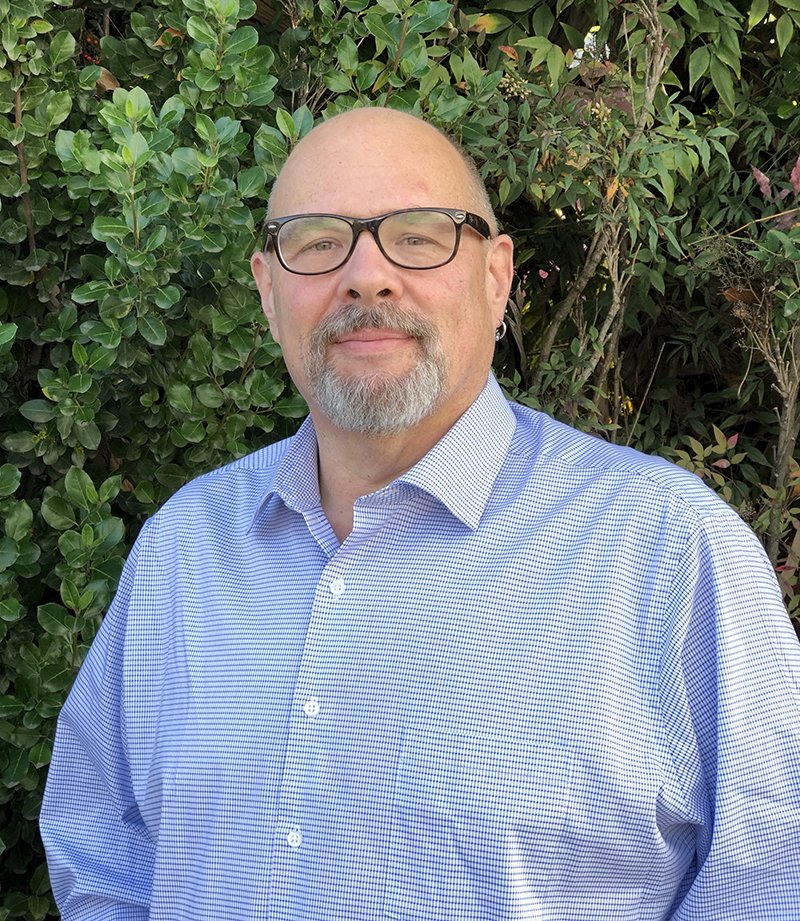
FEED-X innovators were chosen by a panel of 13 fully independent subject matter experts in the fields of nutrition, feed, environment, alternative protein, aquaculture innovation, finance, and assurance at a September 17, 2019 event in London. With a systems approach, that event called on innovators in the feed and aquaculture sectors to come forward with sustainable alternatives to transform the industry’s performance. The judging panel included representatives from Skretting, IKEA, DTU Aqua, WWF, Cambridge University, Surrey University, DNV GL, and the World Bank, as well as private wealth and impact investment partners, with EIT Climate Kic providing independent observation.
About NovoNutrients
Focused on food and feed from CO2™ carbon capture and utilization, NovoNutrients is the protein behind the protein™. Through proprietary microbial biotech, NovoNutrients transforms industrial waste carbon dioxide (CO2) into alternative protein ingredients and food/feed additives. The process's key inputs are CO2 and hydrogen. The CO2 is utilized from untreated waste emissions from cement plants, ethanol factories, pulp and paper, refineries, or a variety of other industrial sources. The products will feed fish, feed pets, and feed people. NovoNutrients is a pre-sales, venture-funded company that is moving quickly to commercialization.
About Project X
Project X is a WWF-founded corporate accelerator that makes sustainability happen quickly and at scale. Its unique methodology helps large companies adopt the very best sustainable innovations, after a comprehensive risk assessment. That, in turn, helps entire industries become more resilient and resource efficient. By fundamentally changing the way things are produced, sold and consumed – reducing environmental, ethical, social, and financial impacts where they are needed most – Project X creates better outcomes for people and the planet.
Contact
Chris Oakes, NovoNutrients, coakes+feedX@novonutrients.com
Jan Gilbert, Project X, jg@projectxglobal.com

Veramaris chosen as Omega-3 partner by Feed-X
| Press Release |
Veramaris chosen as Omega-3 partner by Feed-X - the WWF-founded feed innovation accelerator
Delft, Netherlands, 3 November 2020
System’s Accelerator Project X Global, founded by WWF, has selected Veramaris as the alternative Omega-3 feed ingredient partner for its FEED-X programme, which aims to see 10% of the global feed industry adopt alternative feed ingredients into value chains.
Veramaris competed against more than 100 other ingredient suppliers to win one of 10 coveted places in the FEED-X Challenge.
Project X’s mission is to radically transform the sustainability performance of 10 industry value chains most responsible for biodiversity decline and climate change impacts in 10 years, and aquaculture has been identified as one of these value chains.
One of Project X’s programmes is FEED-X, which is focused on scaling alternative feed ingredients into the global feed industry. Its mission is to shift 107 million tonnes to sustainable sourcing.
The FEED-X Knowledge Exchange Programme has officially begun, with two online events bringing together all partners to discuss two key topics: the benefits of scaling alternative feed and building resilient supply chains.
Karim Kurmaly is CEO of Veramaris, he said: “Sustainability is at the heart of our mission; to mitigate reliance on fish oil and fish meal and make a sustainable, natural feed ingredient more accessible. Based on current and forecasted demand there is not sufficient sustainable volumes of wild caught fish to produce the fish oil needed for the further growth of aquaculture.
“Veramaris was honoured to be chosen by Project X to take part in the FEED-X programme; this participation helps us to sharpen our focus. We hope it can build a coalition for change that helps us to access markets much faster and help us to make a difference to people, fish and oceans.”
Marcela Navarro, CEO and Co-Founder of Project X, shares the sentiment: “The planet is asking us for coordinated action at scale – it’s crucial that we deliver it quickly. The degradation of climate change and biodiversity loss is happening at an exponential rate and the average response is linear.
“High performing sustainable alternatives such as Veramaris are a critical component of a hedging strategy for resilient value chains in the feed space. We are inspired by the opportunity to continue to collaborate with Veramaris; together, we will catalyse the paradigm shift required to bring sustainable breakthrough innovations to market.”
For more information on the FEED-X programme and upcoming events, visit Knowledge Exchange. To find out more about Veramaris, visit www.veramaris.com.

Dr Nick Rousseau
Dr Nick Rousseau
Consultant at Unconventional Connections LTD
Founder and Managing Director at Woven Network C.I.C.
Nick has worked consistently over many years to support more sustainable food solutions – in 2009 he founded a local food growing cooperative and ran it for 5 years before working in the Sheffield Junk Food Project.
In 2015 Nick founded the Woven Network CIC – UK’s (international) network focused on supporting entrepreneurs and researchers working on the opportunities around insects for food and feed.
As a result of his work with Woven, Nick has built an extensive international network of people involved in insect farming and gained a broad understanding of the many issues facing the sector and the opportunities that insect farming offers. He has been asked to speak about the potential of insect protein in the Houses of Parliament, at a policy think-tank event on the future of food and at academic and business conferences.
Within the global FeedX challenge he assessed the many different submissions from insect farming companies.
Nick leads Unconventional Connections, assisting local and national Government and associated bodies, businesses and universities to set up successful projects and initiatives. Nick is a very experienced strategic consultant with considerable experience of leading international projects and collaborations. He has worked across a wide range of domains bringing in experiences and insights from many areas to his work.
His consultancy work has a strong focus on helping international food production to be more sustainable and he has developed a broad network of contacts and experts to support this, with a particular focus on China and India. In addition, projects the team at Unconventional Connections delivered include:
- For the UK’s Knowledge Transfer Network – reviewing opportunities for them to win more business from Government and advising on a business expansion strategy
- For the Department for International Development – mapping UK energy technology company strengths to developing country needs and developing proposals for programmes that could harness that for real impact in the developing world
Nick currently works part time for Loughborough University as International Liaison Manager within the UKAid funded Modern Energy Cooking Services programme where he leads on business engagement.
Previously to his consultancy work, Nick had over 20 years of experience of working in UK Government often with foreign Governments and businesses. He was Head of International Innovation Strategy for 5 years at the Department of Business, Innovation and Skills. Nick worked with many across the UK and international innovation landscape to develop ways to support innovation in practice.
Nick holds BA, MSc and PhD degrees in psychology from the universities of Cambridge, Sheffield and Loughborough with a focus on psychology and user centred system development.


